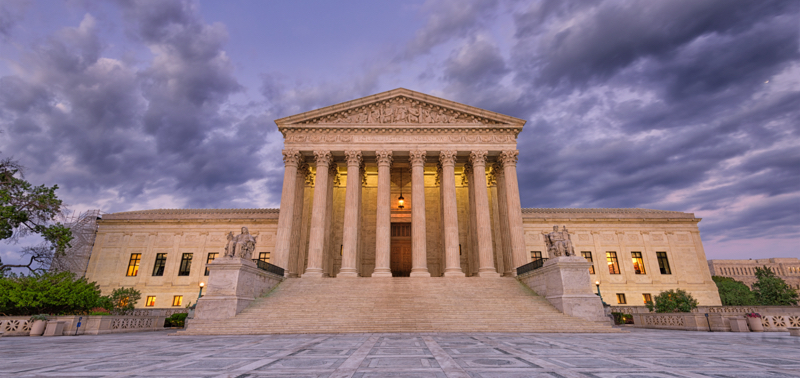
29 Sep Supreme Court and Social Media

Margaret A.M. Heine
is the principal counsel at Heine Law Group in Fullerton, California. She is licensed in California and Washington and has authority to practice before the Supreme Court of the United States and the United States Court of International Trade.
Her practice includes estate planning, wills, trusts, and probate as well as business, real estate, and civil litigation. Email: nbylegas@gmail.com or visit company website www.margaretamheine.com.
Supreme Court and Social Media
October begins the new Supreme Court Term. In October and November, the Supreme Court will be hearing some interesting cases involving Social Media.
Under an emergency request, the Supreme Court will be reviewing the decision in Murthy v. Missouri, a 5th Circuit Court of Appeals case. The 5th Circuit and the Court of Appeals issued an injunction against the White House, the CDC, the FBI, and the Surgeon General from reviewing social media company policies on what stories can be reported on the social media platforms. They would instruct the social media company what topics and information could be disseminated, and what content needed to be removed from the platforms. The government argues that this is a necessary activity to stop the spread of misinformation on social media platforms.
The plaintiffs argue that all that is accomplished is an infringement on First Amendment rights of free speech. They further argue that this makes social media platforms simply a propaganda mechanism for the government. Some would point out that the government itself was responsible for misinformation about the efficacy of wearing masks, getting vaccinated, the necessity of shut down of the economy, and the efficacy of certain drugs or treatments. As recent news stories and interviews point out, many of the things that the government promoted were untrue and did not substantially benefit the general population.
The 5th Circuit Court of Appeals found that the oversight and direction of the federal government created a circumstance where the First Amendment rights of those who disagreed with the government’s various positions were blocked from stating their objections and reasons which in essence amounted to an unauthorized governmental act by the social media platforms. The Supreme Court will be hearing arguments on this matter on October 4th, 2023.
In two other cases, the question is whether a government official acted appropriately on social media by blocking comments or persons from their social media accounts. In O’Connor-Radcliff v. Garnier, O’Connor-Ratcliff were California school board members who blocked the Garnier’s from the Twitter and Facebook accounts, as the parents were critical of the school board and the actions of the school board. The Twitter and Facebook accounts were used in the normal course of communications between the School Board and the General Public. The Garnier’s sued as they were effectively eliminated from the official correspondence method of the school board members and the general public. They successfully argued in the lower court that being blocked from interaction with the school board members on these social media platforms infringed on their First Amendment Rights. This case will be heard by the Supreme Court on October 31, 2023.
The second case is Lindke v. Freed. Freed was the city manager of Port Huron, Michigan. He had a personal facebook account and page, which was only used for personal use and not for any official notices, information, or city content. Lindke was a constituent which disliked the city’s handling of the COVID 19 situation. He posted derogatory comments and criticisms on the personal facebook page of the city manager. Ultimately Freed blocked Lindke from his personal facebook page. Lindke then sued for a violation of his First Amendment Rights. The lower court found that since Freed did not use facebook in his professional capacity or as a city employee, Lindke did not have any First Amendment protections in this case. This case will be heard by the Court also on October 31, 2023.
In Acheson Hotels LLC v. Laufer, Deborah Laufer sues Acheson Hotels LLC under the Americans with Disabilities Act (“ADA”) for failure to supply sufficient information on the internet regarding the hotel. Deborah Laufer has sued over 600 hotels for failures of the hotels under the ADA for accommodations for those with disabilities. In this case, she alleged that the website of Acheson Hotels LLC did not supply sufficient information regarding how they accommodate patrons with disabilities. Ms. Laufer did not intend on staying at the hotel or becoming a patron of the hotel, she was simply suing as a nominal plaintiff for enforcement under the ADA. The district court dismissed this case as Ms. Laufer did not intend to stay at the hotel; she was not injured as the result of the internet website or information supplied on the internet. On appeal, the U.S. Court of Appeals reinstated the case on the basis that there are contradictory cases with regard as to whether a nominal plaintiff who is not actually harmed can bring a complaint under the ADA rules. Whether the ADA rules regarding internet accessibility were even violated was not initially addressed as the matter was determined on the basis of whether or not Ms. Laufer could be the plaintiff in this type of action. The ADA addresses the issue of website/internet accessibility in terms of the physical requirements of navigating, reading, and accessing information on the internet. None of these are argued to be lacking by Acheson, rather the argument is that the information provided is not sufficient to determine if a personal with disabilities would have accommodations which would be appropriate for a person with disabilities. More information on internet and website availability for under the ADA provisions can be found at www.ada.gov. The Court is scheduled to hear this matter also on October 4, 2023.
Welcome to the 2023-2024 session of the U.S. Supreme Court.




Sorry, the comment form is closed at this time.